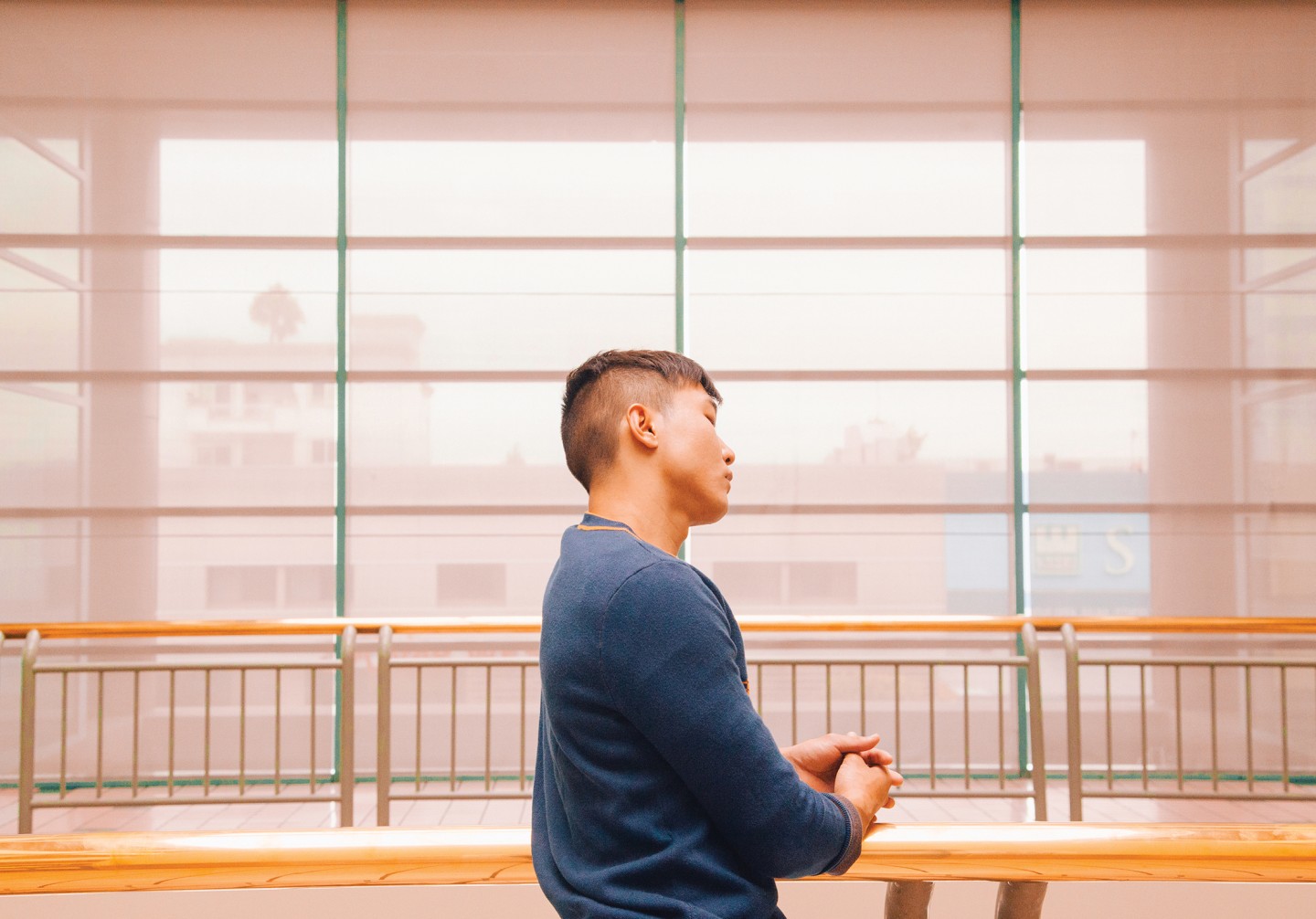Subversive comedian Joel Kim Booster is one of the eight people we're watching in 2019. Click here to see our full list, and buy a print copy of The Now Issue here.
Model Minority is the title of the debut stand-up album from comedian Joel Kim Booster. Over the phone from Los Angeles, the 29-year-old Korean-American tells me how, in his own “special gross way,” his material tweaks the “benevolent racism” embedded in the belief that Asian-Americans are diligent minorities who won’t ruffle white peoples’ feathers. “I talk about sex, drugs — all this shit on stage that’s a self-conscious shirking of Asian stereotypes,” he says. “It’s just who I am and what interests me.”
Booster’s riffs include racism in the gay community, Confederate monuments, and his own upbringing, sandwiched between jokes about how he’s better looking than a baby and why crows are too smart. His more confrontational jokes possess a reflexive and timely clarity, as marginalized populations become more visible in the entertainment industry; in between fits of laughter, the audience reckons with what diversity really means to them. “They look at me and have these ideas about Asian male desirability,” he says, “so I can fuck with that.”

Booster’s subversion of stereotypes is written into his history. Born in South Korea, he was adopted by a conservative, white, evangelical family in the Illinois suburb of Plainsfield, outside of Chicago. Homeschooled until senior year of high school, Booster knew he was gay from a young age and kept it a secret. Youth group at church nurtured his ambitions of becoming a pastor — the only acceptable outlet at the time for his love of performance.
In his senior year, Booster’s parents found his diary containing the names of boys he had hooked up with; he moved out, sleeping on couches and in his car before landing with a friend’s family who eventually cosigned on his student loans. Things are better with his parents now, and he has love for them: “The people that I’ve trusted over the years and chosen to be my family compliment the family that I grew up with. I don’t have a lot of sadness about it anymore.”
At the beginning of his sets, Booster often briefs audiences on his background so they’re not thrown off by an Asian man doing bits about his mom’s Midwestern accent. He used to resent this until realizing it’s something comedians just have to do. “There’s so much talk about comics not wanting to do colleges because they’re so politically correct,” he explains. “For me, I was told coming up, ‘Don’t do this material because it will alienate this club in North Carolina.’ They don’t want to hear about my sex life.” Comedy can be held up as a great equalizer, but the path to a laugh can be more fraught for some, considerable talent notwithstanding.



After studying theater at Millikin University, he developed his voice with story-driven sets in Chicago’s “weird queer art spaces” before moving to New York and throwing himself into the city’s open-mic nights. On Model Minority, Booster’s persona is a hot, vain idiot, a conscious rejection of the self-deprecating humor he previously used. “I didn’t have a good sense of self esteem, and I used stand-up to investigate and process that,” he says. “I saw it as a challenge: Can I still get the audience on my side if they think I’m full of myself?”
Booster says his new material is “smaller and more absurd” than his more autobiographical work, and there’s a slight collapse in his voice when he talks about how finding humor in the real world is far more difficult these days. He’s also lined up as a co-host with Patti Harrison on Comedy Central’s digital variety series Unsend, which skewers social media and examines the “structures and weird languages” that define a life lived constantly online. But don’t expect Booster to get cerebral: he says his work leaves the “insightful” jokes about issues like the “pervasiveness and toxicity of racism” to other comics. “There are people out there who make that funny — and that I find that difficult to do in a way that I don’t find it difficult to make like cum funny,” he says, with an audible smirk.
